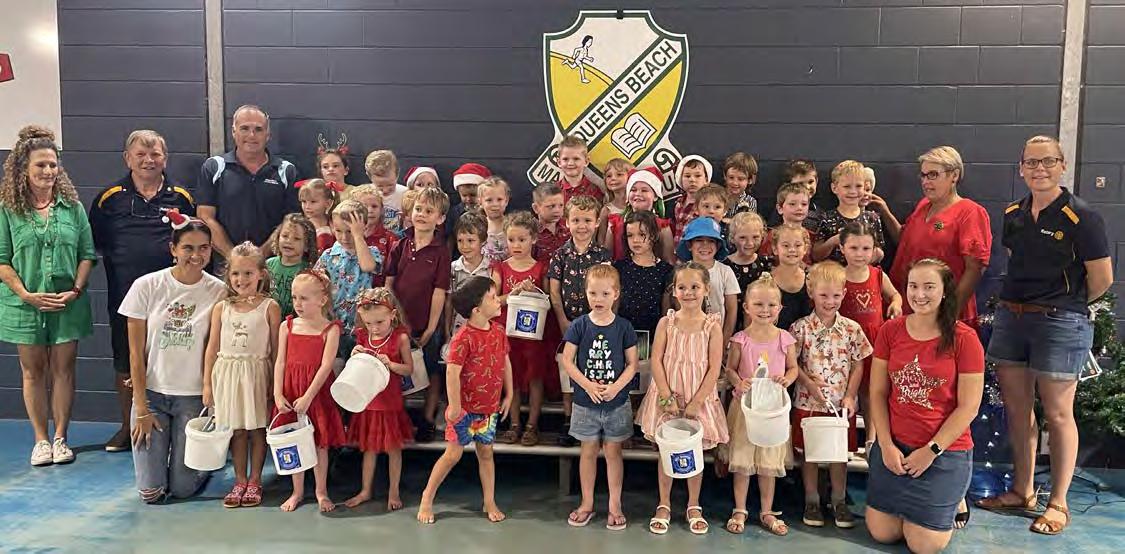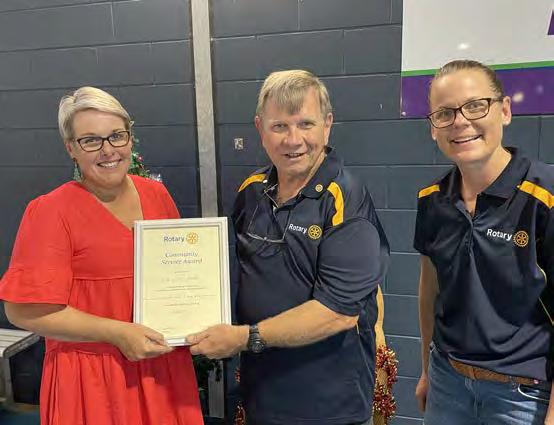
4 minute read
Rural to Reef
Using Less To Grow More
Local Farmers Use ‘Precision Agriculture’ To Save Money And The Reef Across the Whitsunday and Mackay regions, local sugarcane growers are getting on board with water quality programs that utilise Precision Agriculture to improve their farm productivity and water quality. Precision Agriculture uses advanced technologies to better inform farm management decisions. This allows variations within a crop to be identified and managed accordingly rather than treating the crop as a consistent unit. Precision Agriculture can lead to more effective application of inputs such as fertilisers, pesticides and irrigation water which reduces both cost to the farmer and environmental impact. The Mackay Whitsunday Water Quality Program (MWWQP) is one of ten water quality regional programs funded by the partnership between the Australian Government’s Reef Trust and the Great Barrier Reef Foundation that work together with local organisations and landholders to deliver onground projects. Farmacist’s project Point of Difference (P.O.D), focuses on educating a broader population of growers in the Precision Agriculture approach to nutrient applications on sugarcane farms. Growers are supported to utilise a range of technologies to provide detailed spatial data of their land, including GPS satellite mapping, Electromagnetic Mapping, satellite yield mapping and elevation data. This allows growers to get a more precise understanding of variables such as soil condition and constraints on their property, which is central to managing crop yields, and nutrient and chemical applications. Working with experienced agronomists, growers then develop a fertilising program specific to their property. The use of variable rate applicators allows farmers to tailor the amount of fertiliser applied based on intra paddock variability such as soil types which can require different fertiliser rates. Growers are also eligible for major grants, which so far in the project have been utilised to build variable rate applicators, upgrade GPS technology, and fund various hydraulic conversions of fertiliser boxes allowing variable rates to be applied. Utilising Precision Agriculture has multiple potential benefits for both the farmer and the Great Barrier Reef. Reducing inputs and increasing uptake efficiency, means less runoff and improved water quality. Agronomist, Zoe Eager, from Farmacist has been encouraged by local uptake. “All my interactions with growers have shown that they recognise the benefits of integrating Precision Agriculture practices and want to adopt these practices on their farm.” “My favourite feedback I get from growers is ‘why didn’t I do this sooner?’’ For more information on any of the projects involved in the MWWQP or Farmacist’s Project P.O.D please visit reefcatchments.com.au. The MWWQP and Famacist Project P.O.D is funded by the partnership between the Australian Government’s Reef Trust and the Great Barrier Reef foundation. Contributed with thanks to Reef Catchments.
Advertisement
Growers are eligible for major grants which can fund machinery conversions New technology promotes ‘Precision Agriculture’

Meet This Years’ Starfish Reef Guardian Superheroes
Last week a Bowen kindergarten group was recognised for their efforts in raising awareness for important environmental issues such as preventing boat strikes on turtles, ensuring litter does not wash down drains and eradicating ghost nets from oceans. The 2022 cohort of Kidz at the Beach were the recipients of a Community Service Award at the annual Bowen Rotary Awards, where they were each named as Reef Guardian Super Heroes and presented with individual Rotary Environment Certificates. For over a decade Kidz at the Beach have been known as a Reef Guardian School. This started when Owen Derrick, a then parent and high school teacher, approached kindy teacher Anna Woodhouse asking if they could start educating young children about the environment because he believed that by high school many life habits had already been established. What started as a small idea has become known as the Starfish legacy, with every year group tasked with a different environmental crusade. “Over the years we have empowered many children and had many families curse us for having to have short showers and grandparents having to stop on the side of the road to pick up paper to save the turtles,” said Ms Woodhouse. “But each year it has been a different journey because each group of children embrace a different risk element to solve. “From how can they save the turtles, tell all the fishermen in the world about going slow to avoid boat strikes on turtles and how can they tell the school and everyone that rubbish goes down the drain to the Great Barrier Reef.

been involved with many projects – they’ve had signs placed at the local landmarks, taken measurements on beaches and brought messages of ‘stop littering, it hurts my heart’ to the mayor. This year they spread the message about the dangers of ghost nets by sending a magic ghost net Jelly fish creation across the country to other kindies to spark conversations with other children their age. The artwork travelled to Townsville, Brisbane, Toowoomba and New South Wales and they are hoping next year they will send it internationally.
Reef Guardian Superheroes 2022 with Educators, Rotarians and Owen Derrick. Photo supplied








